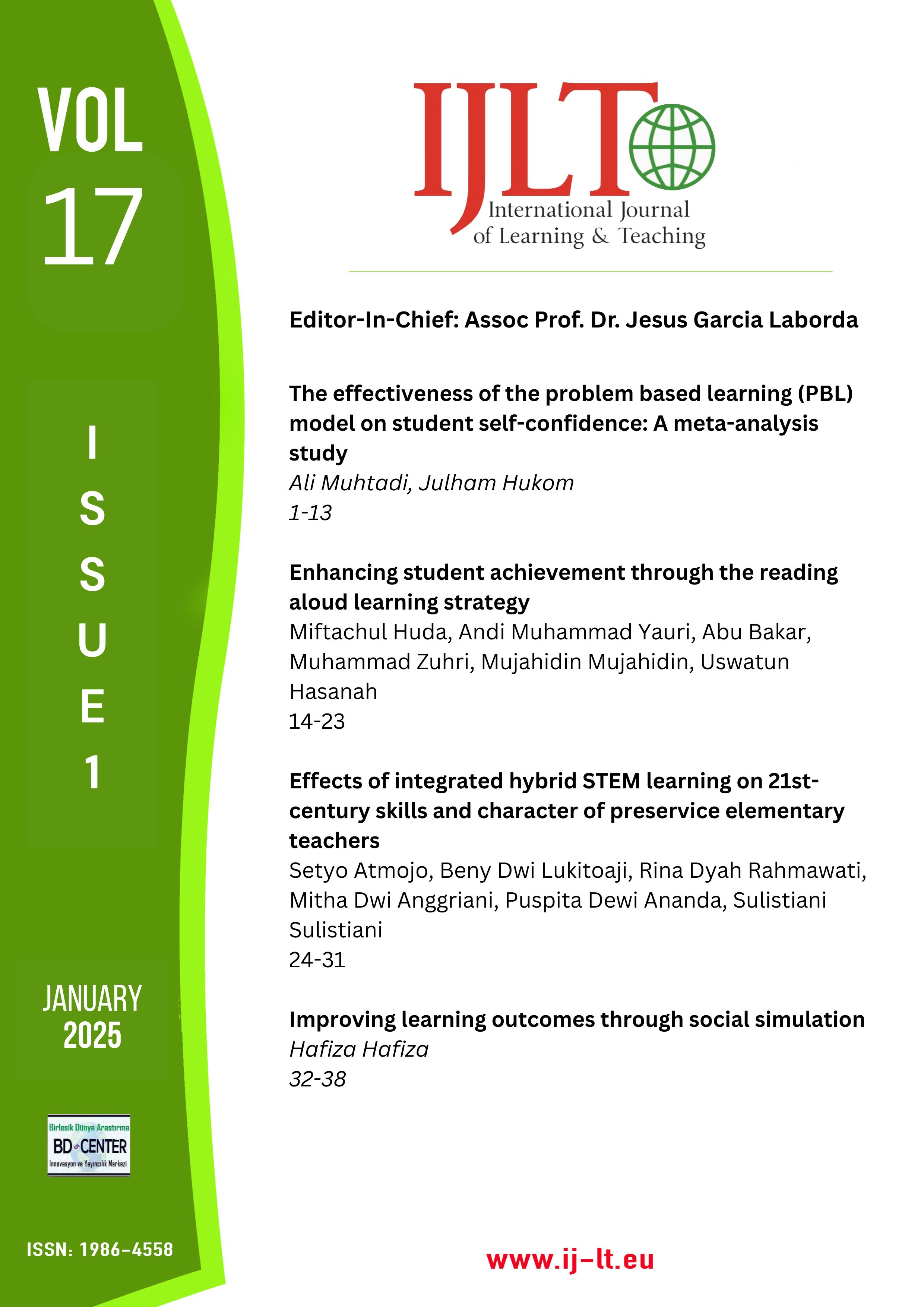Improving learning outcomes through social simulation
Main Article Content
Abstract
Traditional cognitive-focused learning often leads to disengagement and a lack of motivation among students. To foster a more engaging and interactive learning environment, the use of simulation methods has emerged as a promising pedagogical strategy. Despite growing interest, a comprehensive synthesis of evidence on the effectiveness of simulation-based learning remains limited. This study aims to analyze the impact of simulation methods on student learning outcomes through a meta-analytic review of national journal articles. The research employed a literature review approach with a meta-analysis design to aggregate findings from studies investigating improvements in student learning facilitated by simulation techniques. The analysis revealed consistent enhancements in student engagement and comprehension, indicating that simulation methods support more effective learning strategies. These methods not only aid in the acquisition of teaching materials but also contribute significantly to the overall quality of learning outcomes. The findings highlight the importance of integrating simulation into instructional design to support deeper learning and sustained academic achievement.
Keywords: Instructional design; learning outcomes; meta-analysis; simulation method; student engagement
Downloads
Article Details

This work is licensed under a Creative Commons Attribution-NonCommercial-NoDerivatives 4.0 International License.
Authors who publish with this journal agree to the following terms:
- Authors retain copyright and grant the journal right of first publication with the work simultaneously licensed under a Creative Commons Attribution License that allows others to share the work with an acknowledgement of the work's authorship and initial publication in this journal.
- Authors are able to enter into separate, additional contractual arrangements for the non-exclusive distribution of the journal's published version of the work (e.g., post it to an institutional repository or publish it in a book), with an acknowledgement of its initial publication in this journal.
- Authors are permitted and encouraged to post their work online (e.g., in institutional repositories or on their website) prior to and during the submission process, as it can lead to productive exchanges, as well as earlier and greater citation of published work (SeeThe Effect of Open Access).
